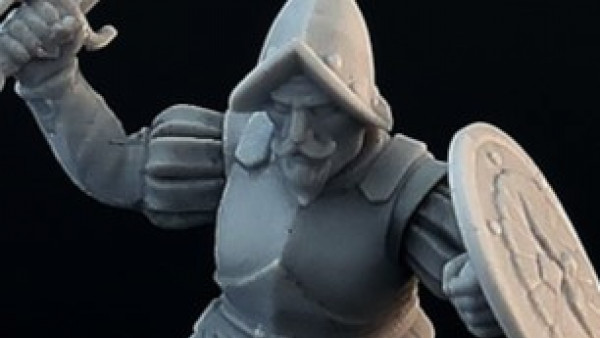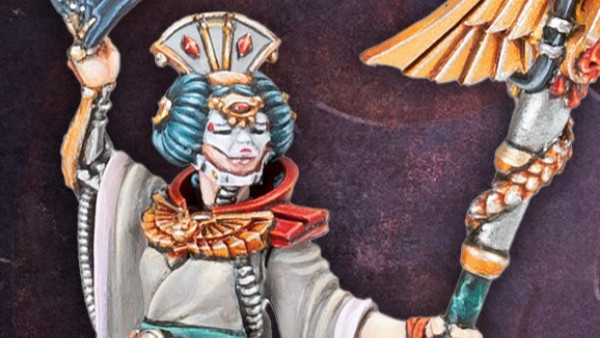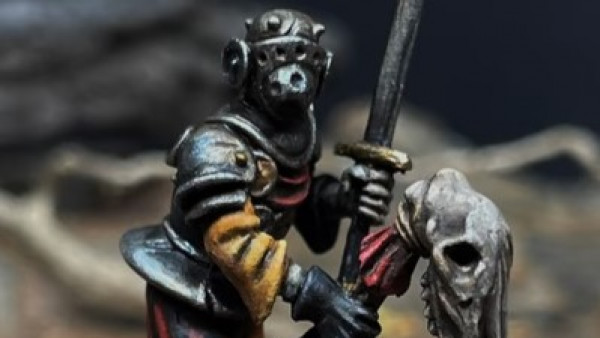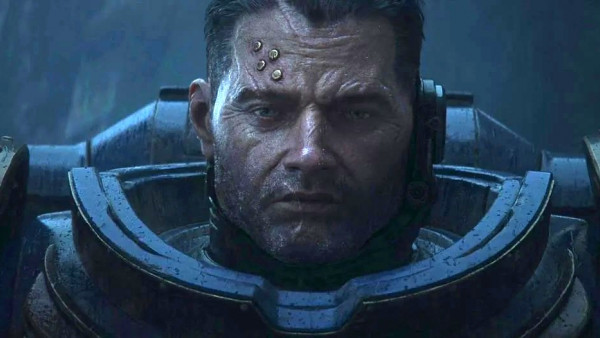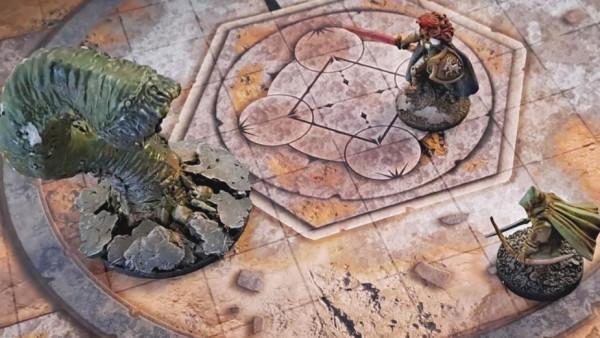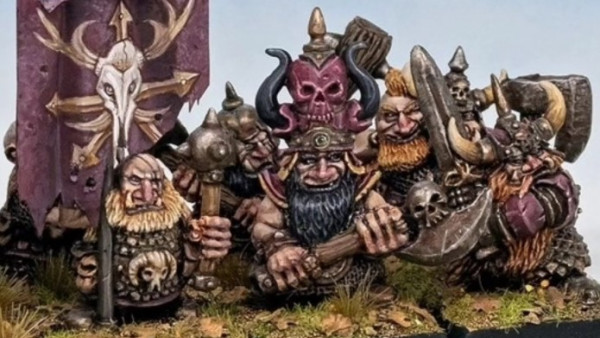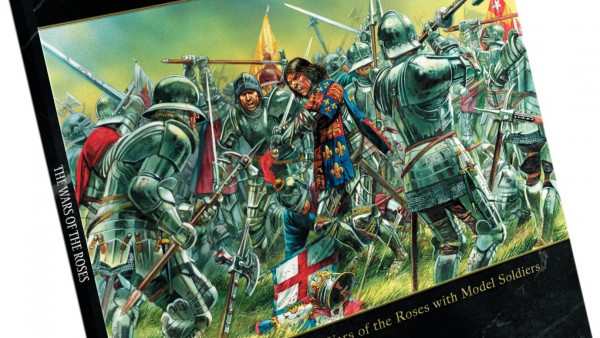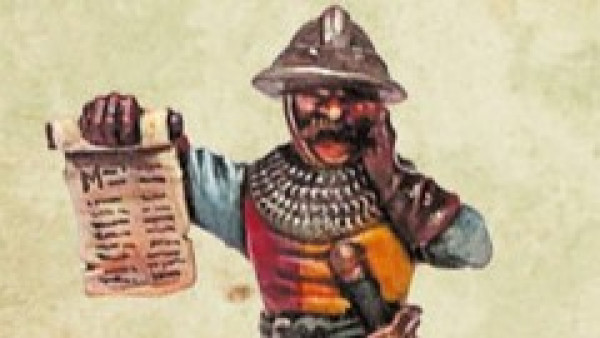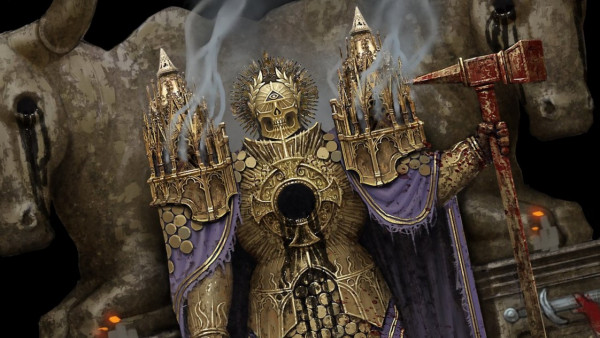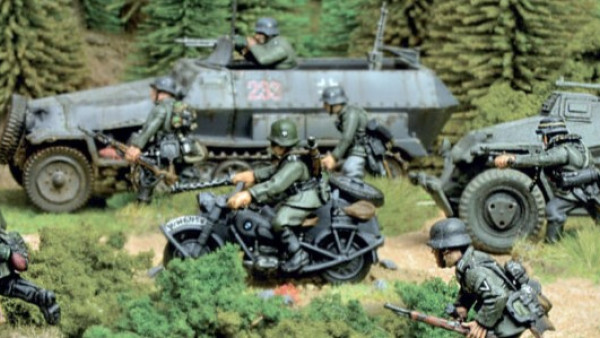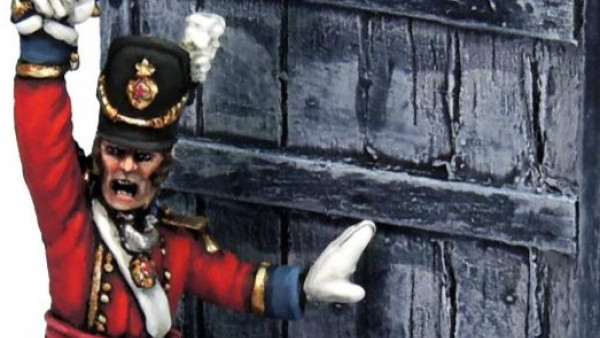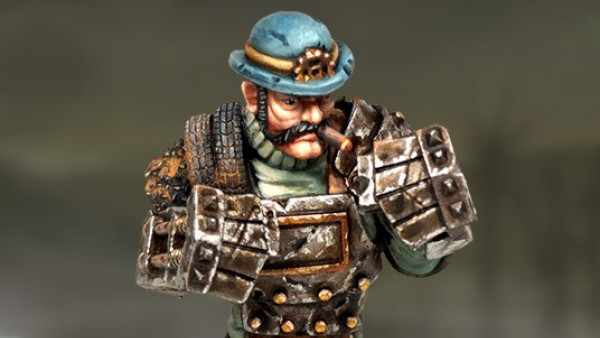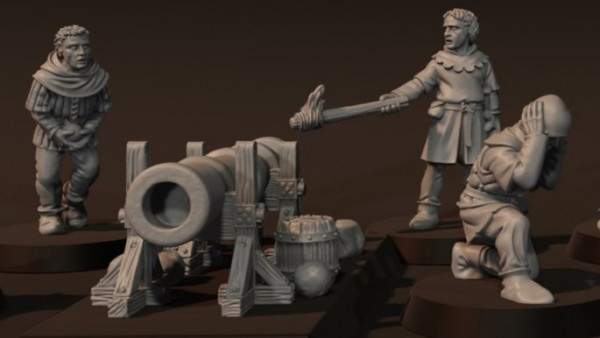Home › Forums › Painting in Tabletop Gaming › Hobby Weekender 17/08/18 › Reply To: Hobby Weekender 17/08/18
Good evening, all ~
Okay, I’m e-mail my group this evening and informing them that I’ll probably taking a weekend off from running Darkstar. Also, the first appreciable slice of media for the Boot Camp ramp-up is done … so I may have some time this weekend to actually hobby a little! Furthermore, some models have arrived, the first ones I have bought since last December when I had to build armies for the Vietnam War / Tet Offensive series.
What can I say, I like a small lead mountain.
Okay, to questions …
Cloning Technology
Okay, that’s a tricky one. Lemme take a stab at it.
When it comes to judging whether a technology is “good” or “bad” for the world, it bears remembering to take a step back and a step forward … to keep in mind the enabling technology that allowed the tech in question, and what the next step in that tech will be.
So cloning is basically born out of the manipulation of genes. So far, I feel it is incontrovertible that this has been a good thing. The genetic creation of short-stalk wheat has reduced the level of world hunger by how much of a percentage? New vaccines, medicines, disease-resistant crops for food production, the list is endless.
Cloning starts (from what little I know about it) with the creation of new cultures, organs, tissues, etc. for medical purposes. Again, this starts out really great, leaving aside the debate over stem-cells (okay, we’re close to violating one of the rules here on politics and religion). When organs and tissues cannot be repaired or healed due to disease (especially cancer), degenerative disorders (like Alzheimers), or injury, cloning a new liver, tissue for a lung, or other organ might really be a revolutionary step in the improvement of the quality of life.
But then we start to run into the hazards. Genetic manipulation can also lead to “designer” babies. It’s a slippery slope. Parents can go to a clinic and make sure their child won’t be born with all kinds of heartbreaking ailments … but what’s to stop them from asking for blue eyes instead of brown? A heightening intelligence? Physical stature? As we see in some better fiction like Gataca, within a few generations we soon wind up with a new nobility, a new genetic elite that you literally have to be born into. Your lot in life is decided in a lab before you’re born. Ironically, it starts to sound very medieval.
Full-blown cloning of entire humans is a ways off, so much that it’s tough to predict whether it would be a good or bad thing. What I mean is, how cloning would effect society at large is honestly a little dependent on how the cloning would actually be carried off.
Say @mage wants a clone of himself so he can paint more models. Fair enough. How is this done? He gives a drop of blood and maybe a few stem cells out of his spinal column or some such and the lab starts growing a clone. Does it take nine months to gestate? Is it born as a child? It has to grow up right? This takes 20 years. Say “Mage2” has a different experience growing up on the clone farm, he grows up hating gaming and martial arts, and instead becomes a concert pianist? Is Mage2 really a clone at that point?
Would clones be produced much faster? Say (to be a little more fanciful) that a Star Trek transporter has a setting that allows copy-paste functionality instead of cut-and paste. Mage steps into the transporter aboard the starship USS Oriskany and instead of simply eliminating his molecules on one place and reforming them in another, the transporter produces a whole new copy of him next to the original. Basically this is how transporter work in that *ahem* “universe” anyway, but say Chief Engineer @biggabum hits the “transport” button twice too fast and two fully developed, fully-aged Mages show up side by side?
Which is the real one? Does Mage2 count as a sentient being? Does he have free will? What happens when Mage1 tries to get Mage2 to paint his extra miniatures (the reason Mage2 was created) and Mage2 doesn’t want to?
All the way back to the wheel and fire, whether technology is a “good” or “bad” influence of course depends on how it’s applied. This is the obvious part. I would just add that every tech ever invented was in fact the “next step” for an earlier tech and a “baseline” for a following tech. What cloning tech would grow out of, and what it would develop into, is just as important (and impossible to black-and-white characterize) as how such technology would be used to harm or benefit mankind as a whole.
Do you think we are the remains of a once more advanced society?
While its an interesting idea from a fiction standpoint (I love the Hyborean Age from the original Robert E Howard Conan novels), honestly I do not think that the human race arose out of the ashes of some “Atlantean” or “Lemurean” culture. The historical and archaeological evidence just isn’t there. I mean, not to put on the “Historical Editor” hat here, but … no.
That said, there are more esoteric arguments that can be made that “outflank” historical fact and approach this question from the side, so to speak. After all, at least here in the US and most or Europe, are we not somewhat arisen from the Roman Republic / Roman Empire?
The Roman Empire did suffer calamity, it did fall, and we have totally had to rebuild from the ashes. Expand that to the Classical World and you have all kinds of further arguments along this line. Greek scientists knew the world was round in the third century BCE, we sure as shit didn’t need Columbus or Magellan telling is that 1750-1850 hundred years later. The lost libraries of Alexandria, the loss of Athenian city-state democracy (that had to be rebuilt) the loss of the Roman republic model (that had to be rebuilt) the loss of the Marian model professional army (that had to be rebuilt) …
I would certainly not say that the Classical Greco-Roman world was more advanced than we are now (never forget how happily these cultures embraced slavery and misogyny). But between the fifth and fifteenth centuries … a huge slice of recorded history … at least in Europe and the West … yeah. We really were further behind than we had been. Of course the Renaissance and the Age of Reason got us caught up and we haven’t looked back since.
Also, this certainly didn’t happen on a global scale. While Europe wallowed the Dark and Middle Ages, cultures in the Middle East and India were far ahead of us in mathematics, science, literature, you name. And in the East you have things like Japanese isolationism and the successive rises and falls of China that kept seeing their culture “rise from more advanced cultures that had fallen to ruin in the past.”
So this kind of this does happen. Just not on a global scale, and not for humanity as a whole, all at once. As with just about anything historical, the trust is always a little more complicated. 😀
A game you have wanted to get into but have not yet done so?
X-Wing. I have a few of the models, and the starter set, and two of my all-time favourite Star Wars craft … the B-Wing heavy assault starfighter. I also have a starter set my friend @bothi gave me when he visited Florida from Germany, I even have this copy in German! (I love my “TIE Jaegers”) So I have it, some of the planes, and would love to just mass-buy a shitload of all the good fighters (X-Wings, Y-Wings, A-Wings, B-Wings, TIE Fightes, TIE Bombers, TIE Interceptors … anything after that and you’re getting into EU silliness) … I just haven’t gotten around to it yet.
Well, that’s probably enough for now. 😀
































![How To Paint Moonstone’s Nanny | Goblin King Games [7 Days Early Access]](https://images.beastsofwar.com/2024/12/3CU-Gobin-King-Games-Moonstone-Shades-Nanny-coverimage-225-127.jpg)










